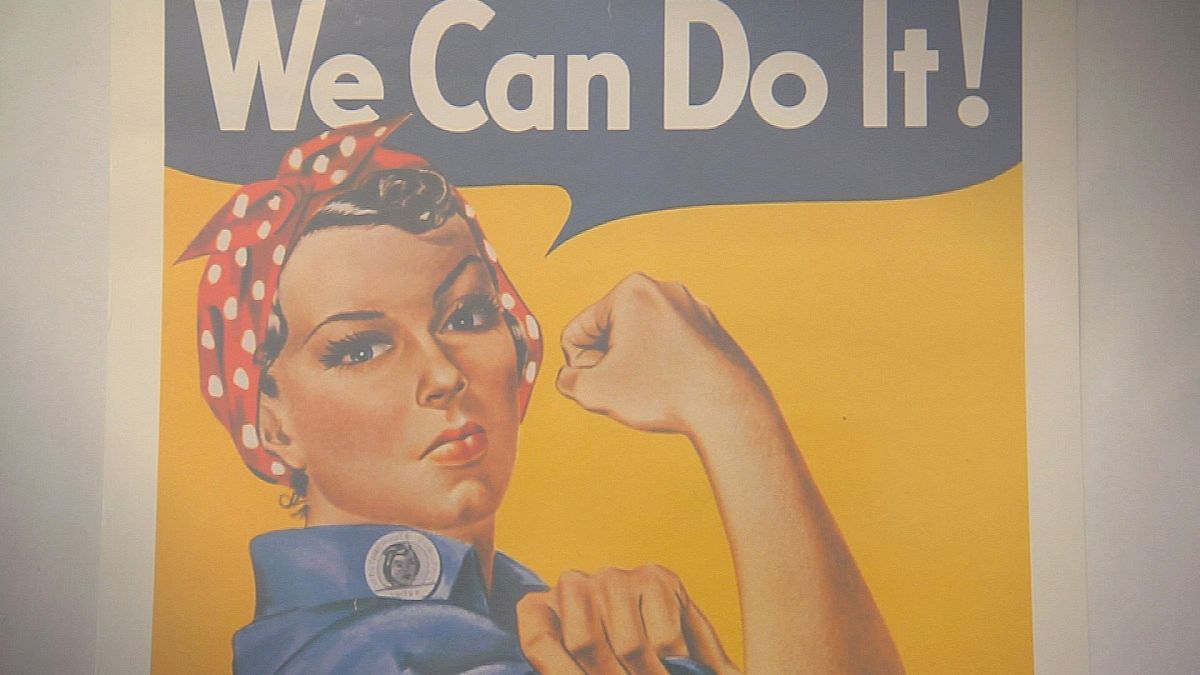Politics is a man’s world.
This cliché is still a reality in many European countries. After years of struggle, there are some cracks in the glass ceiling, but the higher up the scale we get, the fewer female faces we see. Euronews correspondent Anne Devineaux reports from Warsaw.
“They want to treat you like a ‘real woman’, they want to be very gentle and open the door before you, but one of the slogans of the feminists was: “We want you to open not the door to the house but the door to the parliament,” explains Wanda Nowicka, vice-president of the Polish Parliament.
Inside the houses of parliament in EU countries there is one woman for every three men. Ten years ago, exactly 22% held a parliamentary seat. Today that figure has risen to just 27%.
But the picture is a mixed one. Huge gaps exist from one country to another. For example: Sweden, Finland and Spain are approaching 40 percent whereas Hungary, Cyprus and Romania have fewer than 15 percent of women in their parliaments.
Poland is making great strides to bridge that gap. With less than a quarter of women in parliament, the country is below the European average. Western style feminism was largely prohibited in the country until 1989. However, a feminist revolution has been underway for a few years now. Yet, working in the corridors of power can be off-putting for some women.
“When a woman talks in a gathering dominated by men, usually men don’t listen to her. They just play with their iPad…For many women it is difficult to face this, because immediately she thinks that she is not worthy, that she doesn’t say important things. Because if she were, they would listen to her,” explains Wanda.
Getting women’s voices heard is the aim of a movement which has seen unexpected success. Known as the ‘Women’s Congress’, it was established just four years ago. Every year, thousands of women gather in a grand auditorium in Warsaw, alongside a few men including the prime minister.
Henryka Bochniarz is one of its founding members and a very influential character in the business world. She remembers how the civil movement was born, on the eve of the 20th anniversary of the fall of the communist regime.
“There was a group of friends, women, and we realised that it looks like the entire change in Poland was done by men,” explains Henryka Bochniar, co-founder of the Congress of Women, “So we discussed: ‘let’s make a seminar on the role of women in transformation’, but when we started discussion on the programme, a seminar was not enough so maybe a conference. Then a two day conference. And we ended up with this huge event in Warsaw with 5,000 women that showed up. We didn’t know anybody. It was completely informal…After the first congress, there was no way to finish, because there was a huge demand. Everybody was asking: What about the next one. We need the next one!”
The first fruits of their labour were born in 2011, when a law imposing a 35 percent minimum for women on electoral lists was adopted. Although some see it as another form of discrimination, the woman behind the measure believes that it is a proven method.
“The quota meant that parties began taking an interest in women. During the elections which followed the law’s introduction, the number of women who stood in the elections doubled,” explains Agnieszka Kozłowska-Rajewicz, Polish Secretary of State for Equal Treament.
The number of women elected did, in fact, increase but by a mere 4 percent, as some parties placed their female candidates at the bottom of the list, limiting their chances of winning.
Across Europe, 89 percent of the leaders of political parties are men. In Poland, not one single woman has led the main political groups.
The work of the “Women’s Congress” is far from over. According to sociologist Małgorzata Fuszara, they should turn their focus away from the city and towards the countryside, the bastion of conservatism.
“The most important thing is that women in the countryside feel much more legitimised to advocate women’s rights, to go for improvements of women’s situation. They organise congresses everywhere… And more and more, local governments are supportive of them. There is a kind of, let’s say, ‘cooperation’ or ‘common game’ of the women’s movement and the local governments.”
“In Poland the trend is positive. It seems that more and more people, in the society as well as in the political class, understand that politics without women cannot continue, that women are needed and necessary in politics in order to change the politics and in order to address the issues important for women,” adds Wanda Nowicka.
The figures point to a real change in attitudes towards women in positions in power, but it may be some time before women take up places at the head of state.
